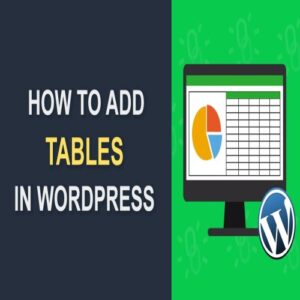In the ever-evolving landscape of digital marketing, the integration of technology and data-driven strategies has become imperative for success. Notably, among the key elements in this dynamic realm are Marketing Qualified Leads (MQL) and Sales Qualified Leads (SQL), each playing a crucial role in the customer acquisition process. To explore this further, this article delves into the significance of MQL and SQL in digital marketing and how the synergy between them can be harnessed for optimal conversions.
Understanding MQL and SQL
Marketing Qualified Leads (MQL)
MQLs represent potential customers who express interest through actions like downloading a whitepaper or engaging on social media. In this initial sales funnel stage, MQLs need nurturing before they’re ready for a sales pitch.

Sales Qualified Leads (SQL)
On the other hand, SQLs are thoroughly vetted leads ready for direct sales team interaction. Additionally, Progressing past general interest, these leads show higher engagement, hinting at a greater conversion likelihood. Transitioning to the next stage, SQLs become pivotal for the sales team’s focused efforts.

The Role of Data and Technology
Data Integration
Both MQLs and SQLs heavily rely on data to identify and evaluate potential customers. Moreover, digital marketing platforms leverage customer data, including demographics, online behavior, and engagement metrics, to categorize leads into MQLs and SQLs accurately.
Customer Relationship Management (CRM) Systems
In the realm of customer relationship management, CRM systems play a pivotal role in managing and analyzing customer data. Furthermore, they facilitate the seamless transition of leads from marketing to sales by providing a comprehensive view of the customer journey. Notably, integrating CRM systems with marketing automation tools ensures a unified approach to lead management.
Bridging the Gap between MQL and SQL
Lead Scoring
Implementing a robust lead-scoring system is critical for effectively distinguishing between MQLs and SQLs. Consequently, by assigning scores based on various engagement criteria, marketers can prioritize leads for sales outreach. Ensuring that the sales team focuses on leads with the highest likelihood of conversion.
Marketing Automation
Moreover, leveraging marketing automation platforms streamlines the process of nurturing MQLs. However, With automated workflows, the system can deliver targeted content, personalized emails, and other relevant communications to guide leads through the sales funnel, gradually transitioning them into SQLs.
Analytics and Reporting
Moreover, in addition, regular analysis of marketing and sales performance metrics provides valuable insights into the effectiveness of lead generation efforts. By identifying patterns and trends, marketers can refine their strategies to enhance the quality of both MQLs and SQLs.
Navigating MQL and SQL Dynamics in Marketing and Sales Alignment
| Criteria | Marketing Qualified Lead (MQL) | Sales Qualified Lead (SQL) |
|---|---|---|
| Definition | A lead who has demonstrated interest in a product or service is, consequently, more likely to evolve into a customer through targeted marketing efforts. | Moreover, a lead that has been evaluated and considered suitable for direct sales engagement is based on particular criteria and observed behaviors. |
| Source | Frequently generated through various marketing activities, such as content marketing, social media, and email campaigns, among others. | Furthermore, typically, MQLs that have advanced through the marketing funnel are identified as ready for direct sales involvement. |
| Characteristics | – Engaged with content | – Specific buying signals or behaviors observed |
| – Requested information | – Budget availability, authority to purchase, need, and timeframe (BANT) criteria met | |
| Purpose | To nurture and educate the lead further, facilitating their progression through the marketing funnel. | Additionally, to qualify and pass on to the sales team for direct engagement. |
| Handoff Process | Subsequently, passed from marketing to sales for further nurturing and conversion efforts. | Moreover, sales and marketing teams collaborate to ensure alignment and a smooth transition. |
| Goal | Furthermore, increases brand awareness, educates prospects, and builds interest in the product or service. | Additionally, convert leads into paying customers through personalized sales interactions. |
| Metrics | – Click-through rates | – Conversion rates from MQL to SQL |
| – Engagement metrics | – Sales accepted leads (SAL) | |
| – Lead scoring | – Conversion rates from SQL to customers |
Conclusion
In the realm of digital marketing, the harmonious collaboration between MQL and SQL is essential for driving successful customer acquisition. Furthermore, the strategic integration of data, technology, and automation empowers marketers to identify, nurture, and convert leads effectively. In conclusion, As the digital landscape continues to evolve, businesses that master the art of aligning MQL and SQL processes will be better positioned to capitalize on opportunities and achieve sustained growth in the competitive marketplace.










